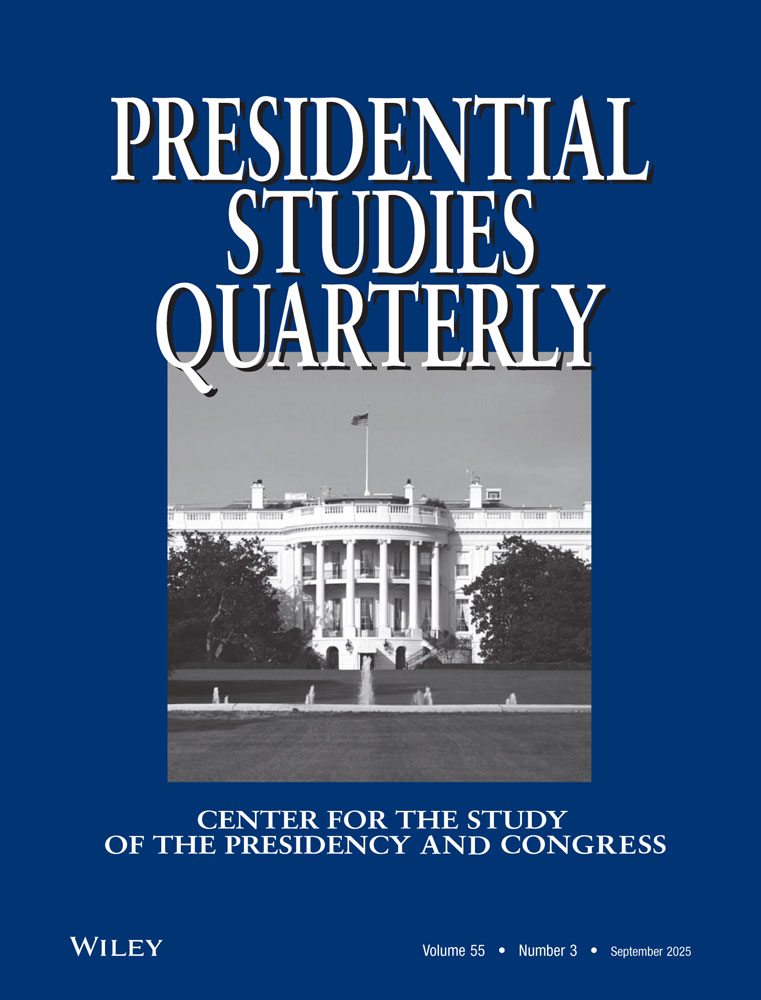Unilateral Action and Presidential Power: A Theory
Abstract
In this article, the authors explore a basis for presidential power that has gone largely unappreciated to this point but that has become so pivotal to presidential leadership that it virtually defines what is distinctively modern about the modern presidency. This is the president's formal capacity to act unilaterally and thus to make law on his own. The purpose of the article is to outline a theory of this aspect of presidential power. The authors argue that the president's powers of unilateral action are a force in American politics precisely because they are not specified in the Constitution. They derive their strength and resilience from the ambiguity of the contract. The authors also argue that presidents have incentives to push this ambiguity relentlessly to expand their own powers—and that, for reasons rooted in the nature of their institutions, neither Congress nor the courts are likely to stop them.




